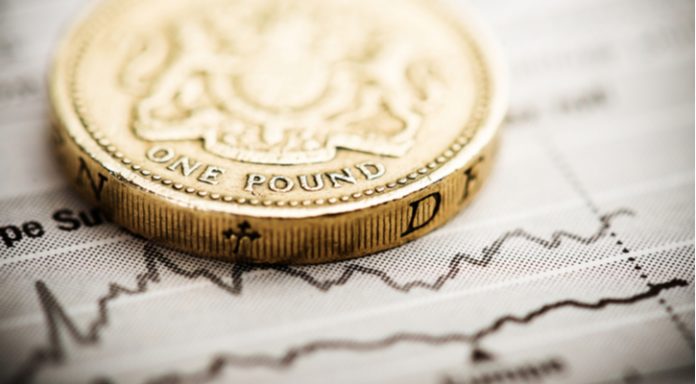UK Prime Minister Boris Johnson suspending Parliament sent the pound sharply lower in the previous session. The pound US dollar exchange rate dropped 0.6% to close at US$1.2218. The pound was drifting lower in early trade on Thursday.
| What do these figures mean? |
| When measuring the value of a pair of currencies, one set equals 1 unit and the other shows the current equivalent. As the market moves, the amount will vary from minute to minute.
For example, it could be written: 1 GBP = 1.28934 USD Here, £1 is equivalent to approximately $1.29. This specifically measures the pound’s worth against the dollar. If the US dollar amount increases in this pairing, it’s positive for the pound. Or, if you were looking at it the other way around: 1 USD = 0.77786 GBP In this example, $1 is equivalent to approximately £0.78. This measures the US dollar’s worth versus the British pound. If the sterling number gets larger, it’s good news for the dollar. |
The pound tanked as Boris Johnson sought permission from the Queen to suspend Parliament for over a month. The suspension was approved and will begin on 12th September. This move by Boris Johnson protects his Brexit plans and frustrates his oppositions attempts to prevent a no deal Brexit. The move takes the UK a step closer to a no deal Brexit, which pulled the pound southwards.
| Why is a “soft” Brexit better for sterling than a “hard” Brexit? |
| A soft Brexit implies anything less than UK’s complete withdrawal from the EU. For example, it could mean the UK retains some form of membership to the European Union single market in exchange for some free movement of people, i.e. immigration. This is considered more positive than a “hard” Brexit, which is a full severance from the EU. The reason “soft” is considered more pound-friendly is because the economic impact would be lower. If there is less negative impact on the economy, foreign investors will continue to invest in the UK. As investment requires local currency, this increased demand for the pound then boosts its value. |
Parliament will return on 3rd September after the summer recess. This means that there is still a small window in which MP’s can bring forward legislation to prevent a no deal Brexit, hold a vote of no confidence which could lead to a general election.
Today Brexit will remain the central focus for the pound. Boris Johnson’s suspension will face multiple legal challenges. These started stacking up just hours after the Queen granted the permission for the suspension. Analysts are expecting volatility in the pound to pick up.
Will US GDP Pull Dollar Lower?
The dollar traded broadly higher in the previous session. There was no high impacting economic data, however the dollar was lifted by its safe haven properties. With no clear signs as to where the US — Sino trade dispute is heading and with the Trump administration showing signs of rushing to resolve the issue investors are concerned that uncertainty surrounding the dispute could continue for the foreseeable future.
Today investors are looking ahead to the US GDP reading for further clues on the health of the US economy. Despite the US — Sino trade dispute, the US labour market remains solid, this is keeping consumer confidence high and consumers spending. The US — Sino trade dispute is causing a slump in the US manufacturing sector. This sector is only responsible for 12% — 15% of US economic activity. This is too small a percentage to have a big impact on overall growth. For these reasons analysts are not expecting a large drop in US GDP. Should they be proved wrong and US GDP falls below the 2% forecast the dollar could decline sharply.
| Why does poor economic data drag on a country’s currency? |
| Slowing economic indicators point to a slowing economy. Weak economies have weaker currencies because institutions look to reduce investments in countries where growth prospects are low and then transfer money to countries with higher growth prospects. These institutions sell out of their investment and the local currency, thus increasing supply of the currency and pushing down the money’s worth. So, when a country or region has poor economic news, the value of the currency tends to fall. |
Currencylive.com is a site operated by TransferWise Inc. (“We”, “Us”), a Delaware Corporation.
The content on our site is provided for general information only. It is not intended to amount to advice on which you should rely. You must obtain professional or specialist advice before taking, or retain from, any action on the basis of the content on our site.
Although we make reasonable efforts to update the information on our site, we make no representations, warranties or guarantees, whether express or implied, that the content on our site is accurate, complete or up to date. Some of the content posted on this site has been commissioned by Us, but is the work of independent contractors. These contractors are not employees, workers, agents or partners of TransferWise and they do not hold themselves out as one. The information and content posted by these independent contractors have not been verified or approved by Us. The views expressed by these independent contractors on currencylive.com do not represent our views.





